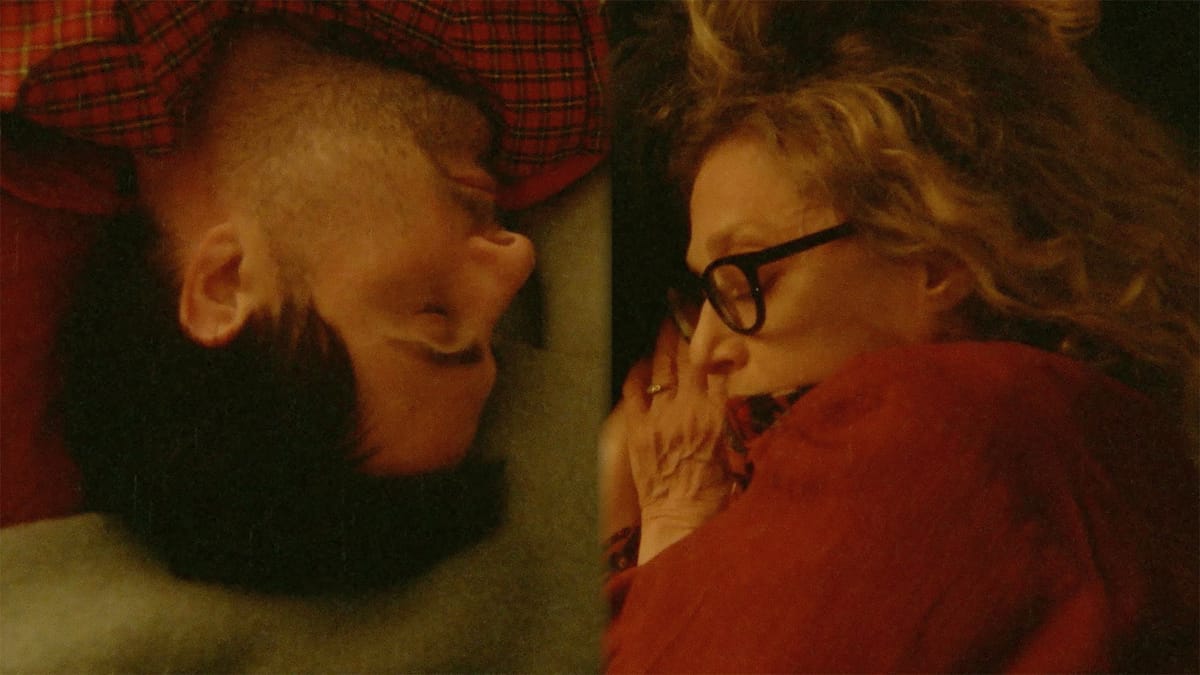Between the Temples

Why is it that Christian movies are such a specific thing, usually terrible and preachy and poorly made, whereas the more limited category of "Jewish movies" just feel like regular movies focused on Jewish people and communities? To be clear, I belong to neither group (although I was technically raised Christian), so I'm only qualified to speak on the cultural artifacts produced by each tradition, and what I've ascertained as an outside observer. For my money, the key ingredient is self-reflection through art. The Christian movies I've seen or read about scream their worldview at you, advocate solving all your problems with faith, and assert that Christianity is clearly the way through: all good things come from God, and all bad things come from your own personal failings. Meanwhile, Jewish films are much more willing to poke fun at their religion, to include characters involved in the faith who maybe aren't paragons of virtue, and to generally acknowledge that the experience of existence is one of trying and failing. People are messy, they're complicated, they contain self-contradictory layers, and it's not always beneficial to deny or suppress that. Thus, what makes you a good person is continuing to move forward, attempting to do better, and even if you frequently come up short, the community will always be there to offer guidance and support and love.
So despite Ben Gottlieb (Jason Schwartzman) remaining a wreck over the death of his wife in a freak accident a year ago, rendering him a cantor who's unable to sing, he's not been cast out. Sure, his insistence on wallowing in self-pity is grating on Rabbi Bruce (Robert Smigel), and his complaints of loneliness while refusing to date has one of his mothers, Judith (Dolly de Leon), setting him up with nice Jewish girls every chance she gets. They still love him, but that does not require endlessly putting up with his self-destructive behavior. However, nothing works until he reconnects with his grade-school music teacher Carla Kessler (Carol Kane), whose own recent status as a widow has freed her up to pursue a much delayed bat mitzvah. What she was like before her husband's death we'll never know, but as her and Ben become closer, it's clear that she's a pro at living her life however she most sees fit, and an expert at letting go of life's troubles. Things in which Ben could absolutely use some lessons.
What emerges is a story about the unifying force of grief, even if the relationship has little to do with that loss. Maybe especially in that case. Ben can't stop talking about his dear departed, but he seems to bring her up to Carla far less frequently. And Carla barely mentions her husband. Instead, they choose to focus on the here and now and trying to get the most out of their lives as they presently exist. In contrast, Rabbi Bruce's daughter Gabby (Madeline Weinstein) is also recently single (just via a failed engagement, though, not death), and while she barely mentions her relationship, she displays an intense fascination with Ben's late wife Ruth (also Madeline Weinstein, although the resemblance is never commented upon). Ironically, this shared grief leads to a fiery romance, threatening to unwind any of Ben's progress in letting go, demonstrating how dwelling on the past will keep you stuck there, and explaining why he's strongly drawn to a woman so firmly rooted in the present, even as they have little in the way of shared experience.
This is aiming for quirky indie comedy, and it's not entirely unsuccessful. It achieves the vibe quite capably, in part owing to being shot on film by the impeccable hand of Sean Price Williams. The acting is quite good, although no one's in danger of receiving awards consideration. de Leon and Kane low key make their characters feel real and lived in, while Schwartzman ably embodies Ben's status as a kicked puppy, quickly making you forget that he often plays characters who are more confident than they have any right to be (e.g. Asteroid City).
Where it falls down is the dialog and comedy therein, especially when it emanates from Ben. I would say "the script", but so much of it feels loose and raw that I'd guess the script simply sketched out the framework of each scene, then filled in gaps with "Ben says something funny". It's an admirable attempt to add realistic awkwardness to the character, but ends up feeling flat and artificial. In a similar bid for authenticity, a number of the dialog scenes (especially the climactic dinner scene) feature characters talking over each other, which creates an admittedly familiar difficulty in following the conversation, serving as a perfect demonstration of why movies rarely seek to exactly replicate real life.
This renders the proceedings a bit inert, especially as the narrative meanders towards the inevitable conclusion. That being said, it's charming and warm enough on the way there, and the decision to continue filming well past the culminating moment without (directly) commenting on it forms the tacit admission that stories with neat endings deny the subject's humanity by pretending any such ending exists prior to death.
The result is the definition of a festival film, the sort of film once derided as mumblecore, reconfigured for a slightly different audience. There's nothing inherently wrong with that, as it feels like a slightly off-kilter yet warm embrace of a film, it's just not the type of thing likely to leave an impression. Then again, it worked last year for The Holdovers, catapulting it all the way to a Best Picture nomination, so what do I know?